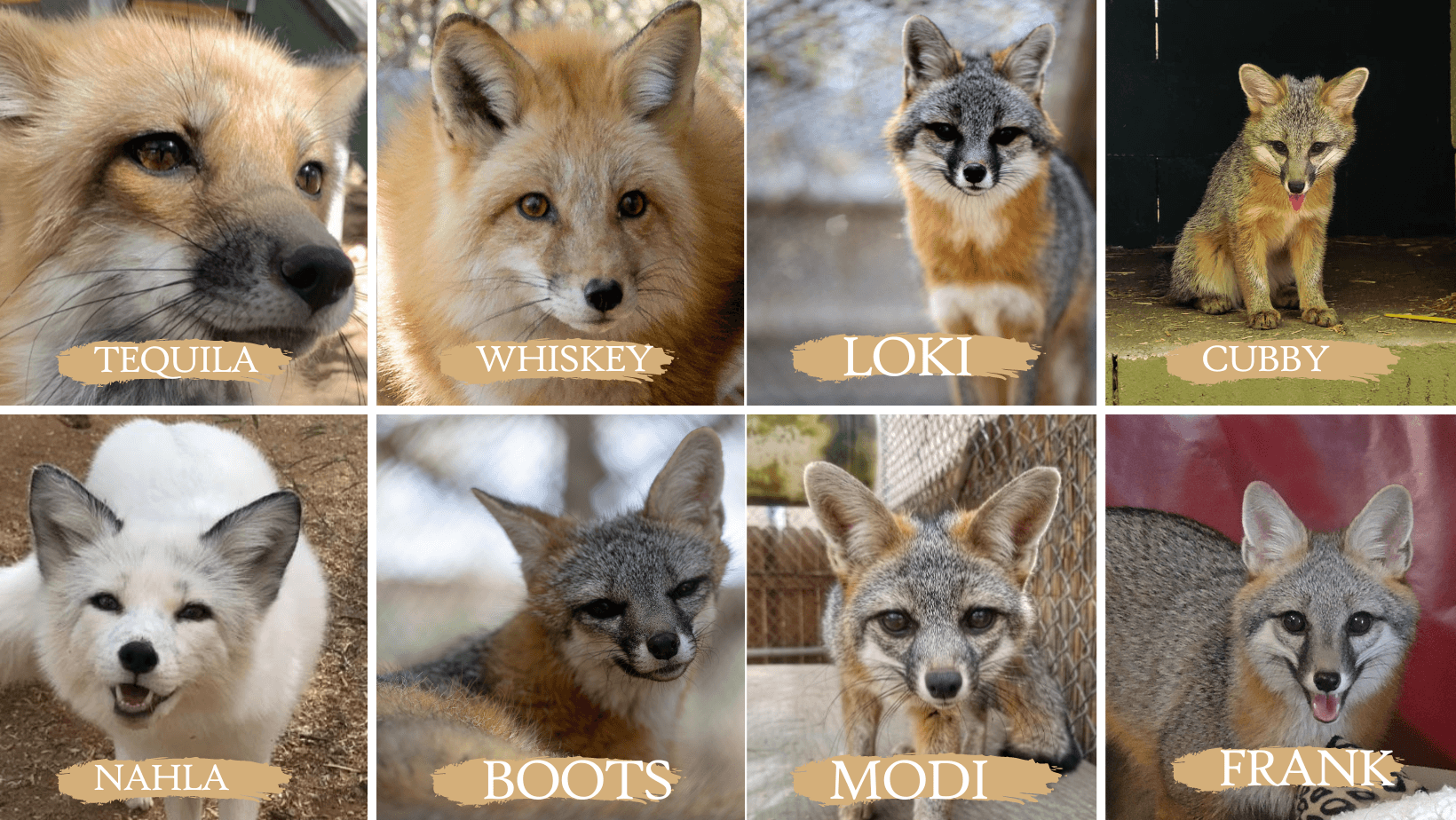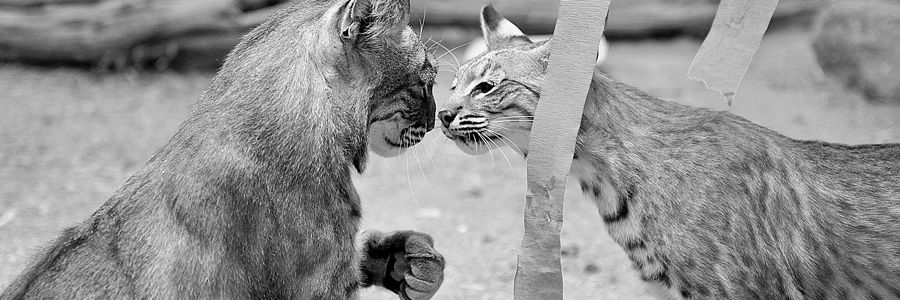FOX
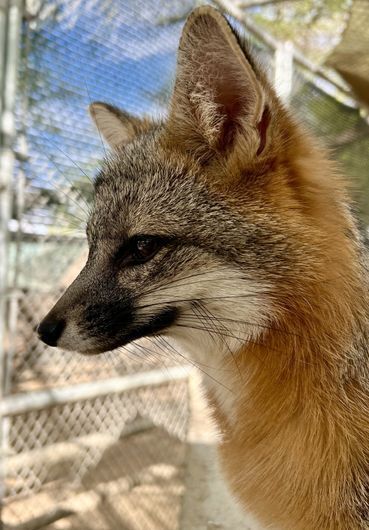
Gray Fox, Urocyon cinereoargenteus
- Habitat: Chaparral, wooded areas, mountains, canyons, denser brush, slopes of rocky ridges, and desert landscape
- Status: Least concern
- Population Trend: Stable
- Diet: Omnivores that vary preference depending on seasonal availability which include rodents, birds, eggs, worms, etc
- Weight: 7 - 14 lbs.
- Size: 12" - 16" tall; 35" - 41" long
- Lifespan: 6 - 10 years in the wild; up to 20 years in human care
- Interesting Facts:
- The Gray fox is one of only two canine species known to regularly climb trees.
- Gray foxes are the medium size of the 3 species of fox we have here in Arizona.
- Gray foxes are considered to be more nocturnal than red or kit foxes.
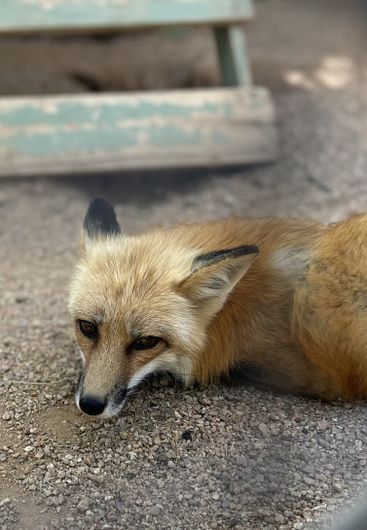
Red Fox, Vulpes vulpes
- Habitat: Grasslands, deserts, thick forests, icy planes, and even urban areas
- Status: Least concern
- Population Trend: Stable
- Diet: Omnivores that vary preference depending on seasonal availability which include rodents, birds, eggs, worms, etc
- Weight: 6.5 - 15 lbs.
- Size: 13.8" - 19.7" tall; 17.7" - 35.4" long
- Lifespan: 2 - 6 years in the wild; 10 - 14 years in human care
- Wild population in Arizona: Unspecified
- In the Southwest Wildlife Sanctuary: 4
- Interesting Facts:
- A red fox's tail measures about 1/3 of its length. In cold weather it serves as warm cover. It also serves as a signal flag to communicate with other foxes.
- Two variant colorations live in the Southwest Wildlife Sanctuary: marble and silver. Look at the picture at the bottom of the page to see examples of how red foxes aren't always red!
- Red foxes are the largest of the 3 species of fox we have here in Arizona.
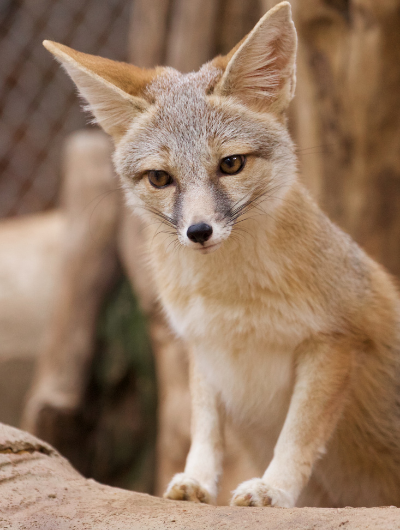
Kit Fox, Vulpes macrotis
- Habitat: Deserts, desert edges, chaparral, scrub, savanna, grasslands, sand dunes
- Status: Least concern
- Population Trend: Decreasing
- Diet: Omnivores that vary preference depending on seasonal availability which include rodents, birds, eggs, worms, etc.
- Weight: 3.5 - 6 lbs.
- Size: 10" - 12" tall; 17" - 21" long
- Lifespan: Up to 7 years in the wild; up to 12 years in human care
- Wild population in Arizona: Unspecified
- In the Southwest Wildlife Sanctuary: 1
- Interesting Facts:
- In relation to their body, kit foxes have massive ears for improved thermoregulation - and of course, hearing.
- Kit foxes are the smallest of the 3 species of fox we have here in Arizona.
- Kit foxes do not drink any water in the wild. They get their water intake from rodents they eat! However, if there is a water source nearby, they will drink from it.
THE SOUTHWEST WILDLIFE FOXES
